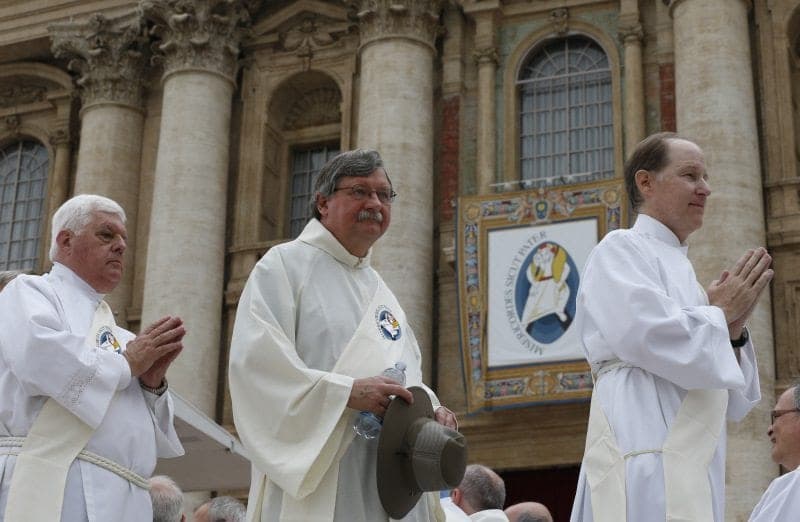ROME— Although it’s not on his official calendar, on Saturday Pope Francis is scheduled to meet with the International Diaconate Center, a Germany-based institute that promotes the role of deacons around the world.
The meeting comes after Francis had to cancel a previously scheduled appointment, which was to take place in October 2015 amidst the Synod of Bishops on the Family.
While the session will happen just after Pope Francis agreed to create a commission to study the possibility of women deacons in the Catholic Church, there’s no indication that subject will be on the agenda.
In effect, Francis is making it up to the deacons after they were deflated last fall.
“The disappointment of the Jubilee participants was clearly felt!” they wrote in their website about the missed appointment last October. (The reference to a “jubilee” is to a 50th anniversary the group celebrated last year, during which some 600 of them were supposed to meet the pope.
However, they say the rescheduled meeting “following intensive talks between Archbishop [George] Gänswein, prefect of the Pontifical Household, and IDC Protector Bishop Gebhard Fürst,” is a “reason to rejoice.”
Fürst, the bishop of Rottenburg-Stuttgart in Germany, acts as ecclesiastical patron for the deacons’ group.
In total, 35 delegates from all over the world will be received by Francis on June 4, including representatives of the Orthodox Church and the Diakonia World Federation.
The meeting comes a week after thousands of deacons from all over gathered in Rome to celebrate the Holy Year of Mercy, and only a month after Francis told a group of 900 superiors of women’s religious orders that he’d be willing to set up a commission to study the role of female deacons.
However, sources close to the International Diaconate Center have told Crux that the matter of ordination of female deacons is not expected to be brought up, either by Fürst or by IDC President Klaus Kießling.
Fürst did tell a German news agency in mid-May, however, that he welcomed the conversation on woman deacons, saying “there is evidence in Scripture that [diaconal] assistance … can be opened to women.”
The IDC has its roots in a group of young social workers who, in 1951, found the first Diaconate Circle in Freiburg, Germany with the aim to serve the people in need as married permanent deacons in the Catholic Church.
In 1962, they launched a petition addressed to all bishops participating in the Second Vatican Council, asking for the renewal of the permanent diaconate. Three years later, the Center was formally instituted.
Sometimes inaccurately thought of as “mini-priests” or “super-laypeople,” permanent deacons are men, often married, who are ordained. Their vocation is to embody the image of Christ the servant, “who came to serve and not be served.”
In the clergy, they’re often overshadowed by bishops and priests, despite there being an estimated 45,000 permanent Catholic deacons worldwide.
Permanent deacons generally have secular jobs to support their families, and also help the in their parishes by visiting the sick, teaching the faith, counseling couples and individuals, working on parish committees and councils, and giving advice to the pastor.
They can baptize, perform funeral and burial services which don’t include a Mass, distribute Communion and preach the homily. As “ministers of charity,” they’re also leaders in identifying the needs of the various members of the community and marshaling the Church’s resources to meet those needs.
The diaconate was restored as a permanent ministry by Pope Paul VI, on June 18, 1967, upon the recommendation of the Second Vatican Council.

















